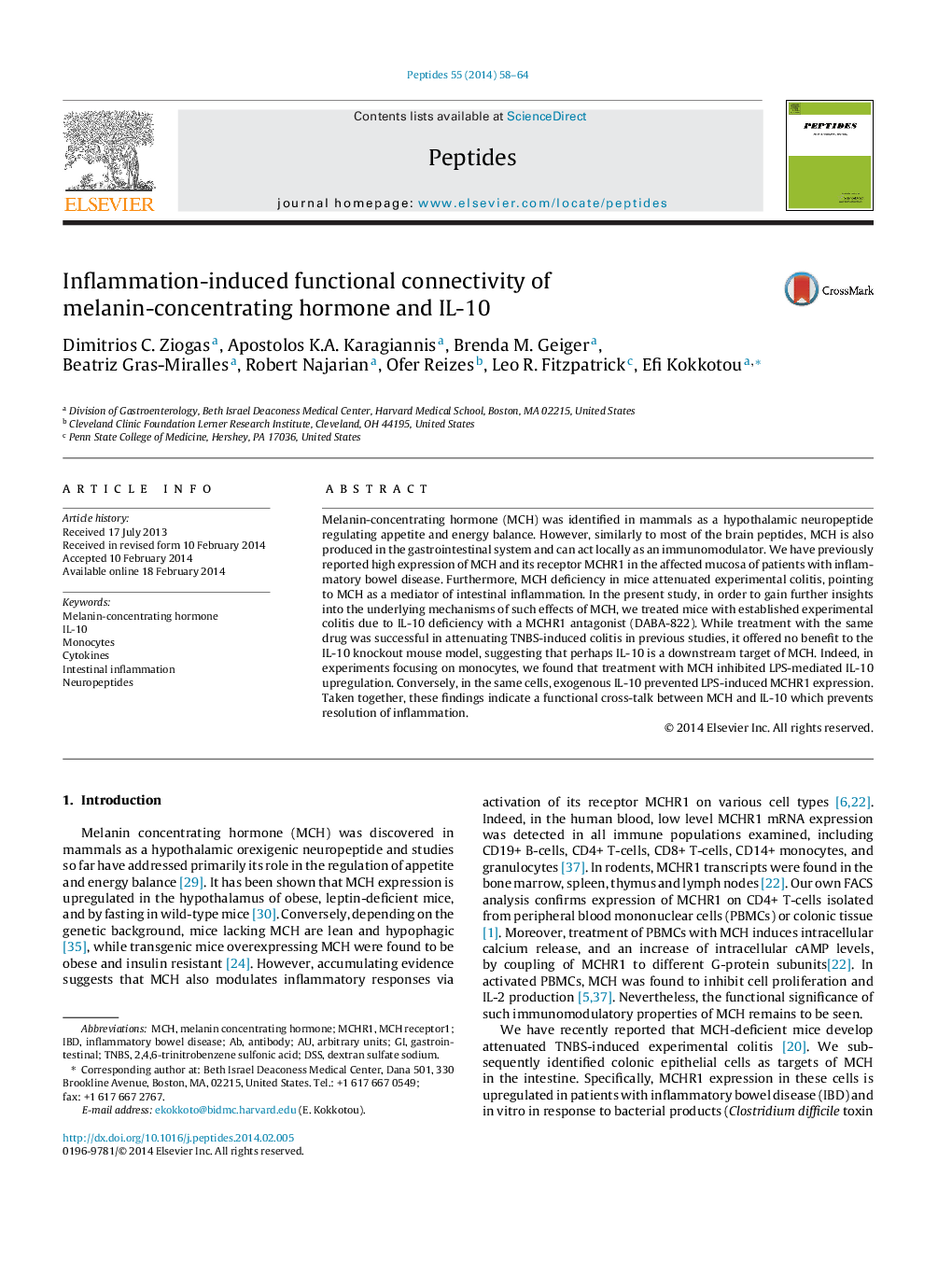| Article ID | Journal | Published Year | Pages | File Type |
|---|---|---|---|---|
| 8348336 | Peptides | 2014 | 7 Pages |
Abstract
Melanin-concentrating hormone (MCH) was identified in mammals as a hypothalamic neuropeptide regulating appetite and energy balance. However, similarly to most of the brain peptides, MCH is also produced in the gastrointestinal system and can act locally as an immunomodulator. We have previously reported high expression of MCH and its receptor MCHR1 in the affected mucosa of patients with inflammatory bowel disease. Furthermore, MCH deficiency in mice attenuated experimental colitis, pointing to MCH as a mediator of intestinal inflammation. In the present study, in order to gain further insights into the underlying mechanisms of such effects of MCH, we treated mice with established experimental colitis due to IL-10 deficiency with a MCHR1 antagonist (DABA-822). While treatment with the same drug was successful in attenuating TNBS-induced colitis in previous studies, it offered no benefit to the IL-10 knockout mouse model, suggesting that perhaps IL-10 is a downstream target of MCH. Indeed, in experiments focusing on monocytes, we found that treatment with MCH inhibited LPS-mediated IL-10 upregulation. Conversely, in the same cells, exogenous IL-10 prevented LPS-induced MCHR1 expression. Taken together, these findings indicate a functional cross-talk between MCH and IL-10 which prevents resolution of inflammation.
Keywords
Related Topics
Life Sciences
Biochemistry, Genetics and Molecular Biology
Biochemistry
Authors
Dimitrios C. Ziogas, Apostolos K.A. Karagiannis, Brenda M. Geiger, Beatriz Gras-Miralles, Robert Najarian, Ofer Reizes, Leo R. Fitzpatrick, Efi Kokkotou,
